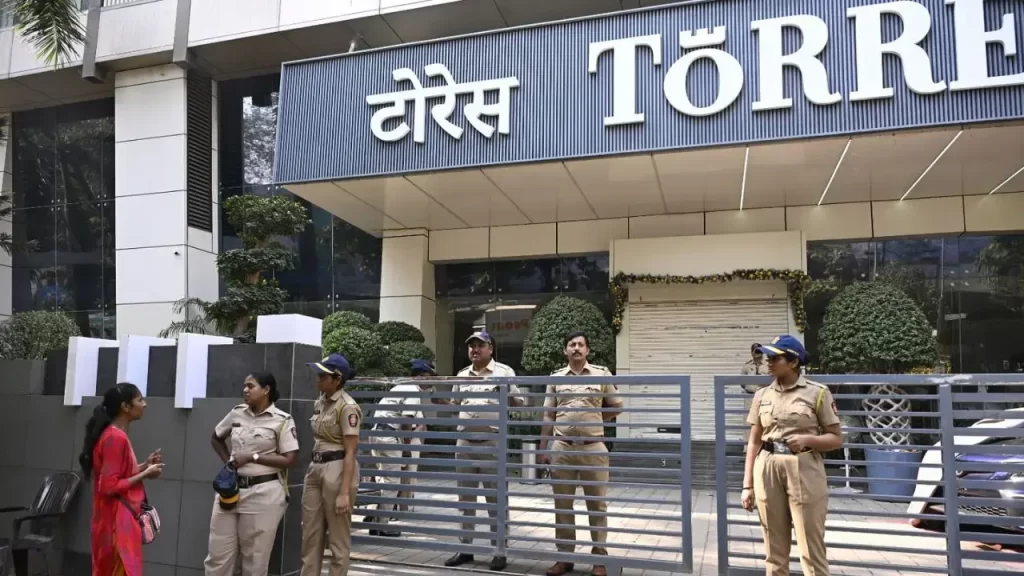Kalyan Resident Killed by Cousin Over Land Issue: A Harsh Reminder of Family Rivalries Going Deadly
Introduction
In a shocking incident that shocked Kalyan’s citizens, a man was murdered by his cousin over an ongoing conflict over land. The episode acts to be a reminder of these exaggerated hazards of violently resolving personal disputes. Property and inheritance disputes have long been a source of stress in families, sometimes with disastrous results.
This blog goes into the depth of the incident, the history of the conflict, the legality, and the wider implications of family land conflicts. Additionally, it talks about how such conflicts can be prevented from escalating to violence and how the institutions assist their part in bringing such conflicts to an amicable end.
The Incident: What Happened?
The cousin duo got involved in a heated argument in Kalyan that became a deadly confrontation while one of them, in a rage, gunned down the other. Witnesses say that the argument had been simmering for years pertaining to family land sharing. Emotions were high while legal procedures were being pursued, & things ultimately resulted in another foolish brutal act.
The suspect left the scene immediately after committing the offense but was subsequently arrested by the police. The victim, sadly, died from his injuries before someone could bring him medical help.
The Root Cause: Land Disputes Between Family Members
Land conflicts are between the top reasons for family disputes in India. Since land in India is usually inherited from one generation to the next, ownership disputes, use rights, and proper documentation are usual. When a property has multiple heirs, the matter becomes complicated.

Common Causes of Land Disputes
Unclear Land Titles: Most of the disputes occur because of unclear land titles or no proper documentation.
Ancestral Property Division: When multiple heirs contest inheritance without reaching a consensus on division, disputes result.
Encroachment and Unauthorized Possession: Members of the family may encroach on land that is not lawfully allocated to them.
Fraudulent Sales and Transfers: Conflicts are exacerbated by documents of forgery and fictitious property sales to third parties.
Emotional and Sentimental Value: The emotional importance of land, especially family land, makes conflicts passionate & personal.

The Legal Perspective: What the Law Says
India has different laws dealing with property disputes, like the Hindu Succession Act, the Indian Succession Act, and the Transfer of Property Act. If there are disagreements, there are legal channels to address differences through the courts, but the process is long & costly.
Legal Options Available
Civil Suit for Partition: A litigation can be filed to lawfully divide a property when its heirs cannot agree.
Succession Certificates: To stake legal claims over a property upon the owner’s death.
Arbitration and Mediation: Procedures recommended by the court for resolving disputes amicably without drawn-out legal disputes.
Criminal Action: Where fraud, encroachment, or violence are involved, criminal complaints are possible.
The Psychological and Social Impact
Families are impacted emotionally and psychologically by land conflicts in addition to financial losses. While showed in Kalyan, protracted arguments generate irreversible rifts between relatives, leading to estrangement and even violent fights.
Impact on Families
Dissolution of Relationships: Brothers and cousins tend to break relationships because of unsettled property conflicts.
Emotional Trauma: Court fight anxiety affects mental health, leading to anxiety and sadness.
Financial Burden: Court disputes and legal fees sap family resources, sometimes leaving parties in financial disaster.
Damage to Reputation: Publicized disputes ruin reputations, affecting social and professional lives.

Preventing Land Disputes Becoming Violent
The Kalyan tragedy is a wake-up call for the parties in land disputes. In some situations, legal disputes cannot be avoided, but violence should never be taken to perspective. The following are some methods to avert disputes from becoming violent:
1. Transparent Documentation and Compliance with Law
Make sure property titles and succession documents are filed correctly.
To prevent confusion, keep property information valid and up to date.
2. Mediation and Family Counseling
Bring up the topic with unbiased mediators or legal experts.
Undergo professional counseling to resolve emotional complaints.
3. Seeking Justice Before Emotions Rule
Use the legal process early rather than allowing controversies to smolder.
Use arbitration to hasten disputes without going to court.
4. Police Intervention
Before things get out of control, notify the law enforcement about every threats or violent altercations.
Obtain orders for legal protection if necessary.
The Role for local Institutions
Institutions have a important role to play in de-escalating land conflicts through upholding law and order. Some measures the government and law enforcement agencies can adopt are:
Quick Court Hearings: To prevent drawn-out disputes in court, accelerate property conflict proceedings.
Public Information Campaigns: Inform citizens on land rights and legal processes.
Community Dispute Resolution Centers: Provide amenities for settlement which take place outside of court.
Strict Punishments for Violence: Have strict legal proceedings against the violators in property disputes.
